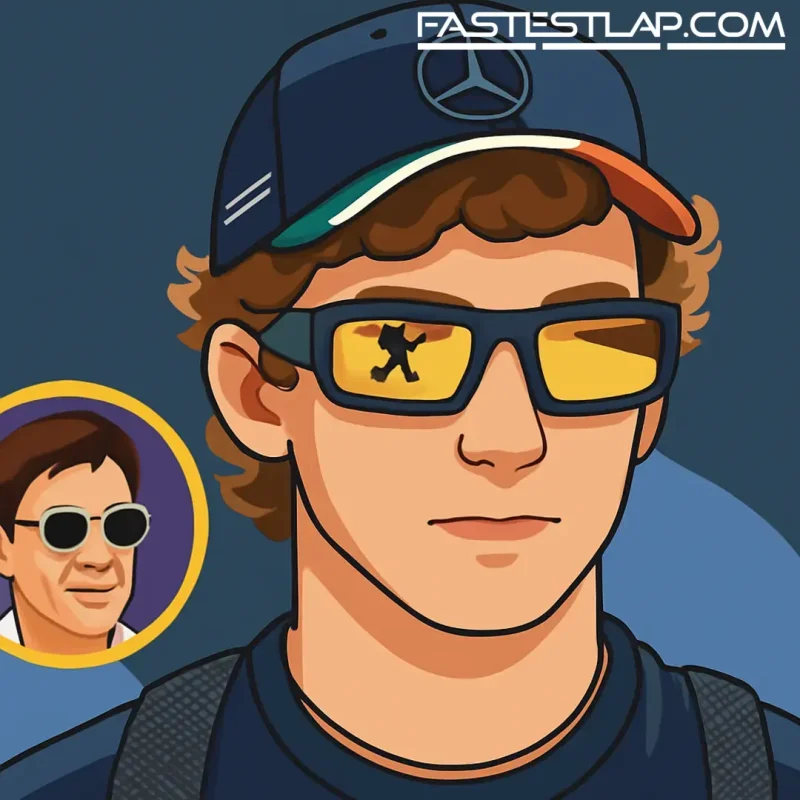Wolff calls Antonelli’s Monza “underwhelming” — but backs rookie to come good
Kimi Antonelli’s first home Grand Prix as a Mercedes driver didn’t get the fairy-tale treatment, and Toto Wolff didn’t pretend otherwise.
“Underwhelming this weekend, underwhelming,” the Mercedes team boss said after Antonelli crossed the line ninth at Monza, trailing George Russell by four places and the thick end of half a minute. “He can’t put the car in the gravel bed and then expect to be there. All of the race was underwhelming.”
It was a blunt assessment from a manager who’s spent most of the season publicly buffering his teenage rookie from the sharper end of the spotlight. Antonelli’s Friday error — beached in the gravel in FP2 — set the tone, even if he did reset well enough to qualify on the third row alongside Russell. Sunday didn’t follow the same arc. Stuck in traffic, he slipped behind Alex Albon and Gabriel Bortoleto in the final classification, and any hope of a late charge evaporated in the relentless Monza train.
The frustration, Wolff suggested, wasn’t just about lap time. It was about rhythm, judgement and a little bit of scar tissue.
“A clean weekend also means not carrying too much trauma of previous mistakes into the next session or into the next weekend, because that is luggage,” he explained. “You’re not going to attack the corner hard if you’ve been off there before and it finished your session. Or maybe you’re not attacking a driver that should not be in your way, like Gasly… Kimi shouldn’t lose even a second with Gasly.”
That last line was telling. Monza’s long straights and DRS queues are a study in momentum; spend a lap looking in the mirrors or sitting on someone else’s gearbox, and the race sags away from you. For a 19-year-old navigating his first full season at the sharp end — and doing it in front of the tifosi — the margins are unforgiving.
It’s also true Antonelli’s campaign has been bumpier than Mercedes would’ve hoped. Zandvoort was the most painful example, where an opportunistic move on Charles Leclerc at the banked Turn 3 ended both their afternoons. At Monza, the mistakes were smaller, the cost less dramatic, but the pattern — the “luggage”, in Wolff’s words — is what Mercedes want to scrub out before 2026’s reset.
And yet, amid the steel, there was the familiar Wolff reassurance. “Doesn’t change anything on my support and confidence in his future,” he said. “I believe he’s going to be very, very, very good. But today was underwhelming.”
The prescription is clear enough: simplify, unclench, race. “Freeing him up,” Wolff added. “He’s a great driver. He has this unbelievable ability and natural talent. He’s a racer. This is all there. But we need to get rid of the ballast.”
None of this will surprise anyone inside the garage. Mercedes knew a rookie year would come with rough edges — and they chose to live with them because they believe the upside is enormous. The irony is that Monza, the track that flatters top speed and punishes hesitation, can magnify rookie hesitancy in a way that makes a Sunday look much worse than it really was. The car still had decent one-lap in it; the race craft needs a cleaner canvas.
The bigger picture matters. The team is staring down sweeping 2026 regulation changes with a driver pairing they want to build around. Russell is the benchmark inside the team; Antonelli, the project with bite. The pathway between those two poles requires patience, and a few sharp Mondays.
Antonelli doesn’t need anyone to tell him Monza wasn’t good enough. But he left Italy with laps in the pocket, a relatively clean car, and a boss who told him the truth in public and doubled down on support in the same breath. That’s not a crisis; that’s a rookie season doing what rookie seasons do.
Next stop: reset, travel light, and don’t bring any baggage. The speed, Mercedes insist, will take care of the rest.




